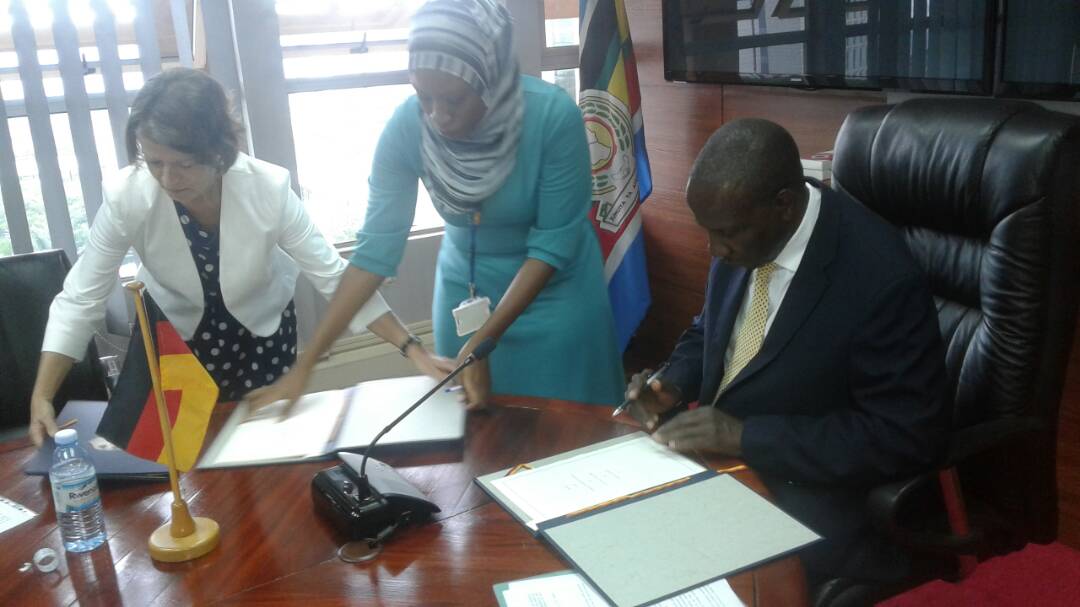The Ugandan government has entered into a partnership with the German Government to help boost its energy sector, rural development and food security, TheUgandan can confirm.
On Tuesday, Finance Minister Matia Kasaija in his office signed an agreement with a high level delegation from the German Embassy Kampala led by the German Ambassador to Uganda Petra Kochendoerfer signed Financial Cooperation Agreements for 2015 and 2016 plus the Technical Cooperation Agreement for 2016.
Kasaija said that the agreements are aimed at developing the major areas of strategic importance as discussed in the recently concluded Development Cooperation Country Programme Framework in which Germany committed to providing €74.6 million of which €52 million is for financial cooperation projects and €22.6 million is for technical cooperation projects.
The agreements will finance big projects like Agago-Gulu Transmission Line in Northern Uganda that will traverse an approximate distance of 170 km and help to improve the electricity supply in the region considerably.

The transmission will evacuate power from three hydro power plants, which are under construction along the rivers Agago and Achwa. The hydro power plants will have a total capacity of 106 MegaWatts and will serve the growing demand in Northern Uganda.
“The construction of the dam is almost done but the transmission lines are not yet in place,” revealed Kasaija jokingly adding, “I was talking to the contractor recently and he asked me if I wanted to give them free money because the lines to evacuate the power are not in sight.”
“You can’t industrialise a country without power, we warmly welcome any assistance in the development of the energy sector,” Kasaija added.
On her part, German envoy Petra Kochendoerfer said her government was emphasising their commitment on helping Uganda reach global standards in the strategic sectors of energy, water security and urban development by funding projects like; Agago-Gulu Transmission Line, Promotion of Drought Resilience and Food Security in Karamoja region, Promotion of Rural Development and Food Security in Northern Uganda, Improve the living Conditions in Gulu (IPILC) Phase II and Water Supply and Sanitation in Sefugee Hosting Communities in Northern Uganda.
Speaking more broadly, Ms Miriam Kiggundu, a Ministry of Finance Communications official said that the signing of the two agreements comes within the framework of strengthening relations between Kampala and Berlin.
Low absorption of funds
Kasaija said this will be corrected going forward by making accounting officers and project coordinators be tied to time-borne activities for which any slippages will be squarely put on their shoulders.
“We have observed that most public projects are not being completed on schedule because of various challenges and we are also aware of laxity by the implementing agencies in owning and steering project implementation is partly to blame for the slow pace of absorption,” he said.
Kasaija added that his Ministry has also committed to providing counterpart funds for both ongoing projects and those to come on board in a timely and adequate manner.
He said, “I will not go to Parliament to get approvals for the grants unless the Secretary to the Treasuary assures me that we enough money here (Finance Ministry).”
In 2017/2018, government is signaling further prioritisation of infrastructure investments as works, transport, energy and mineral development sectors are expected to take 35.1 per cent of the national budget (excluding debt rollover).
Author: stephenmuneza@gmail.com, +256772544870 or Twitter @stephenkmuneza











